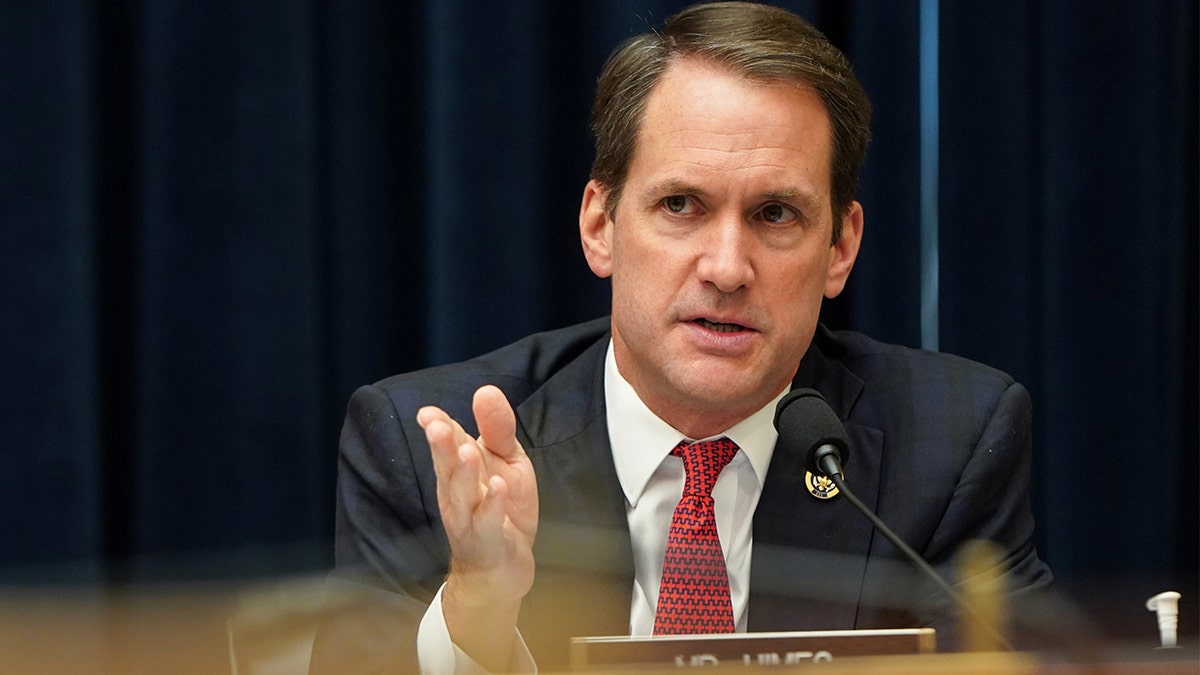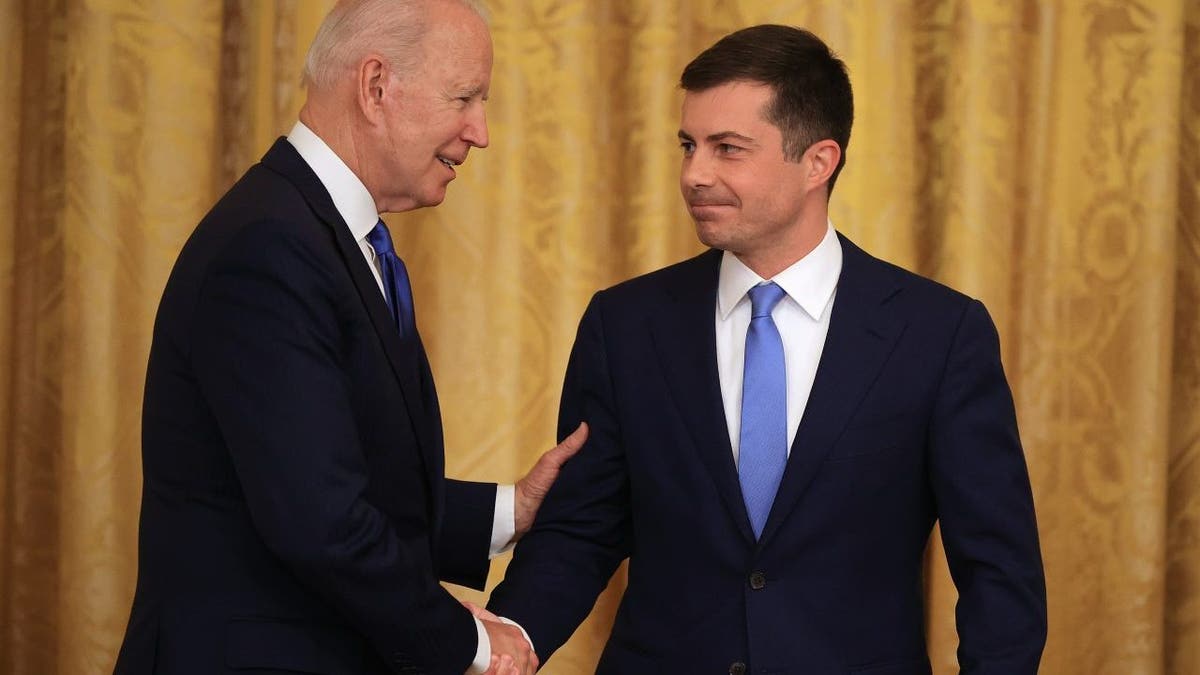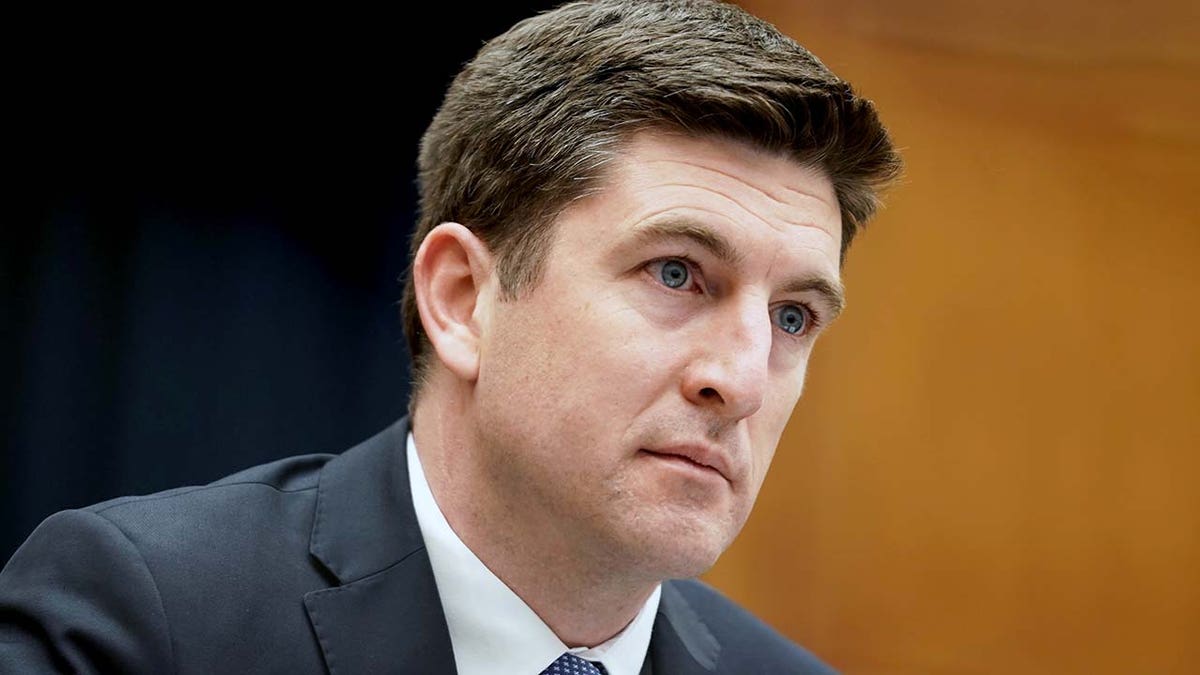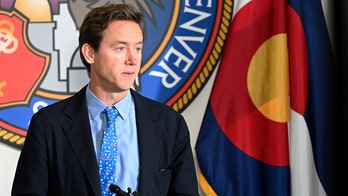Fox News Flash top headlines for February 9
Fox News Flash top headlines are here. Check out what's clicking on Foxnews.com.
Nearly three months since President Biden signed the bipartisan $1.2 trillion Infrastructure Investment and Jobs Act (IIJA), political cracks have surfaced as policymakers look to implement the massive investment.
The House Select Committee on Economic Disparity and Fairness in Growth held a hearing Wednesday to discuss how expanding infrastructure investments can bridge disparities, but not all lawmakers agreed it was an appropriate role for the federal government to play.
MCCONNELL, CAPITO REJECT FEDERAL PUSH TO PRIORITIZE GREEN PROJECTS FOR INFRASTRUCTURE FUNDING

In this file photo, Rep. Jim Himes, D-Conn., asks a question during a House Financial Services Committee hearing on Capitol Hill in Washington. (REUTERS/Joshua Roberts/Pool)
Chairman Rep. Jim Himes, D-Conn., pointed to the massive expansion of roads and highways following World War II and argued it "was done in a way that advantaged some Americans and disadvantaged others."
Himes said that while the transportation developments better connected cities to surrounding areas, it often further marginalized underserved communities.
Florida Republican Rep. Bryan Donalds pushed back on Democrats' position that investing in infrastructure, like highway safety and even some conservation efforts, like water runoff regulations, should also address social disparities.
"Infrastructure is something that there is a public need for," Donalds said during the hearing Wednesday. "I think the debate is starting to shift from necessary public infrastructure.
"From a federal perspective now, we’re coming to the point where is it a public infrastructure project to help alleviate broad public good or now are we starting to get into intimate private aspects of infrastructure to rebalance playing fields in the United States? That’s a very different conversation."
TRANSPORTATION SECY. BUTTIGIEG HIGHLIGHTS THAT BIDEN’S INFRASTRUCTURE LAW IS ‘GOOD POLITICS’

President Biden (left) shakes hands with Transportation Secretary Pete Buttigieg. (Chip Somodevilla/Getty Images)
But Democrats on the committee argued that social disparities are an intrinsic part of infrastructure investment because connecting disadvantaged communities to schools and jobs will help close the wealth gap.
Though the focus of the hearing was how infrastructure investment could facilitate inclusive economic growth, Republicans repeatedly voiced their frustration with how policymakers may implement and distribute funding for each state’s needs.
House committee members echoed Senate GOP concerns that the federal government may be politically motivated in how it doles out its funding.
A December 2021 memo to all 50 states from the Federal Highway Administration alarmed lawmakers after it appeared to prioritize policies that invested in greener objectives and discouraged states from expanding highways.
"Its implementation is being dictated often by bureaucrats in Washington, D.C., and not by local officials," said Ranking Member Bryan Steil, R-Wisc.

Rep. Bryan Steil, R-Wis., attends a House Financial Services Committee hearing on "Oversight of the Treasury Department's and Federal Reserve's Pandemic Response" in the Rayburn House Office Building in Washington Dec. 2, 2020. (Greg Nash/Pool via REUTERS)
CLICK HERE TO GET THE FOX NEWS APP
"Highway investments that don’t reach certain democratic guidelines and vague standards may not be prioritized for new grant money," Steil warned. "This leaves potential projects vulnerable to a political motivation, underfunding if they don’t reach the social demands of the Department of Transportation."
Fox News could not reach the Federal Highway Administration for comment regarding GOP criticisms.





